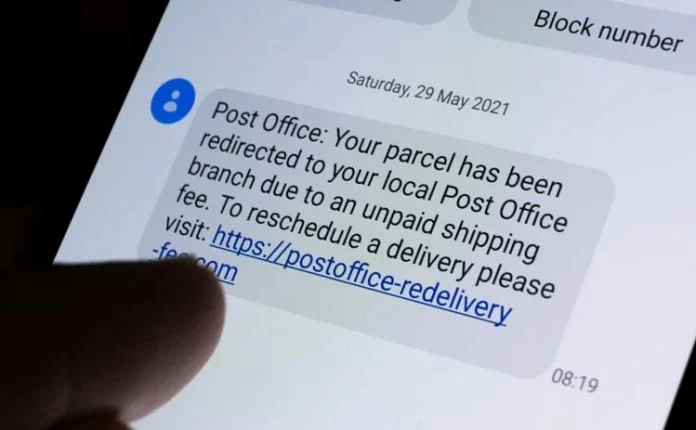
The Arizona Attorney General’s office is warning consumers about the rise in text scams.
The Federal Trade Commission reported a record-high of 378,119 fraud complaints about text scams in 2021. This marked an increase over the number of complaints it received in 2020 (332,275), according to a press release from the Attorney General’s office.
In 2021 alone, Americans lost at least $131 million due to text scams; the median loss was $900 per person.
The Arizona Attorney General’s office also says it has seen an increase in complaints about these scams.
“Our office has made great strides in battling telephone scams and bogus calls, but the fraudsters are relentless,” Attorney General Mark Brnovich said in a press release. “Text messaging schemes are now on the rise, and people are losing their money.”
Brnovich’s office notes that text scams deceive consumers by sending them a cryptic message in hopes that they will either respond or click on a link.
For example, these scammers sometimes pretend to be banks and financial institutions. They text people claiming to inform them of suspicious activity regarding their bank accounts. The scammers then ask people to verify their account username, password, or PIN.
Brnovich’s office also warns of delivery scams. In these cases, fraudsters pretend to be delivery services and ask people to confirm their credit card to pay for the delivery of a package.
Other times, scammers pretend to be government agencies like the IRS or the Social Security Administration and ask for their social security number to receive their tax returns or prevent legal action from being taken against them.
Plus, scammers pretend to be well-known companies and may promise people a gift card or cash by filling out a supposed survey.
Additionally, Brnovich’s office warns people about impersonation scams. In these cases, the imposter pretends either to have the wrong number or to be an acquaintance of the person they are trying to scam.
“You may receive a text from an unknown phone number with a simple phrase like, ‘How are you?’, ‘Hi,’ or ‘I couldn’t reach you. Call me back when you can,” according to the release.
The Attorney General’s office offers people the following advice to reduce their chances of being victimized by this kind of fraud.
Here is what the Attorney General’s office says on the matter.
- Ignore messages from unknown numbers claiming to be financial institutions, shippers, government agencies, and private companies. These entities do not request personal information via text message. It is highly unlikely they would text you if you have not first reached out to them. If you think the request could be legitimate, independently call or email using contact information from the entity’s website, not from the text message.
- Do not click any links in an unsolicited text message. Clicking the link can give the scammer access to personal information on your phone.
- Do not respond to a text message from an unknown number. Do not reply even if the text message says “text STOP” to avoid more messages.
- Block the number that sent you the scam text message. Click here for a guide on how to block scam texts on an iPhone or Android phone.
- Look for red flags in the text message, like misspellings or directions pressuring you to act quickly. Scammers want you to think the matter is urgent so that you don’t take time to evaluate the situation fully.
- As a general rule, treat your personal information like cash. Would you give cash to someone who randomly contacts you via text message? Treat any phone number that asks for any personally identifiable information through text message as if they are asking you for cash.
- Take your time, and follow your instincts. Even if the message seems to be from an entity or number that you recognize (like your bank), has this entity ever texted you before? Even if they have texted you before, have they ever texted about this particular piece of information or made this particular request? Being cautious will save you a lot of time, aggravation, and money in the long run.
Additionally, the Attorney General’s office tells people they can file a complaint with the office if they have experienced or witnessed consumer fraud. The office tells people that if they want a complaint form sent to them, they can contact the Attorney General’s Office in Phoenix at (602) 542-5763, in Tucson at (520) 628-6648, or outside the Phoenix and Tucson metro areas at (800) 352-8431.
Republished with the permission of The Center Square.













